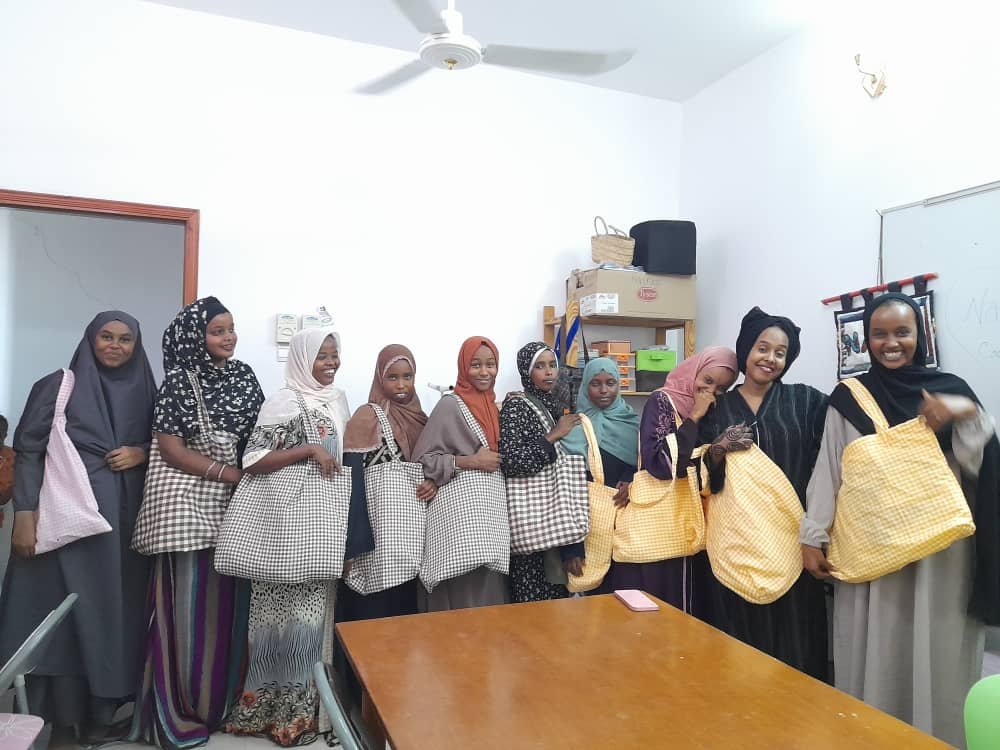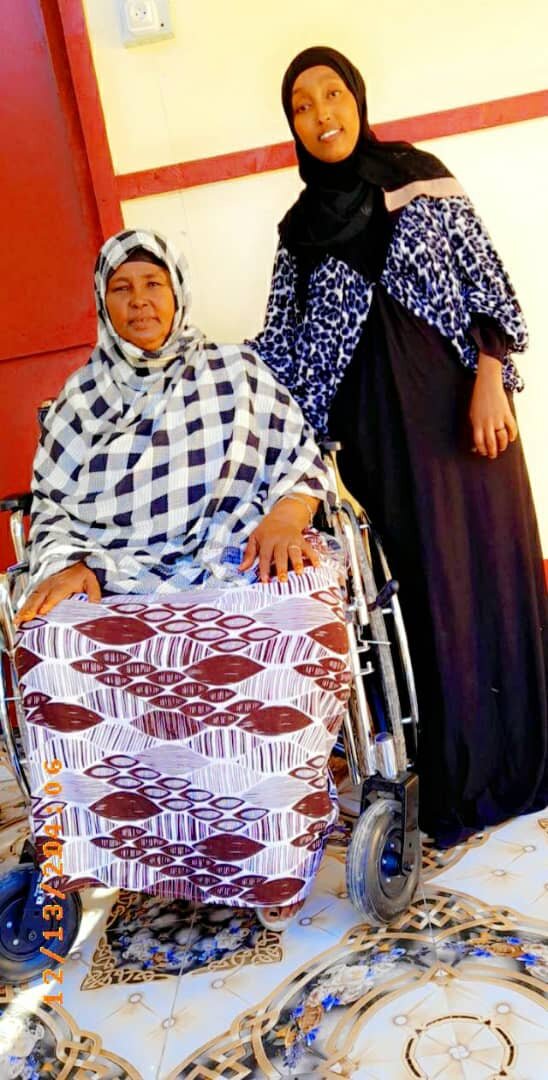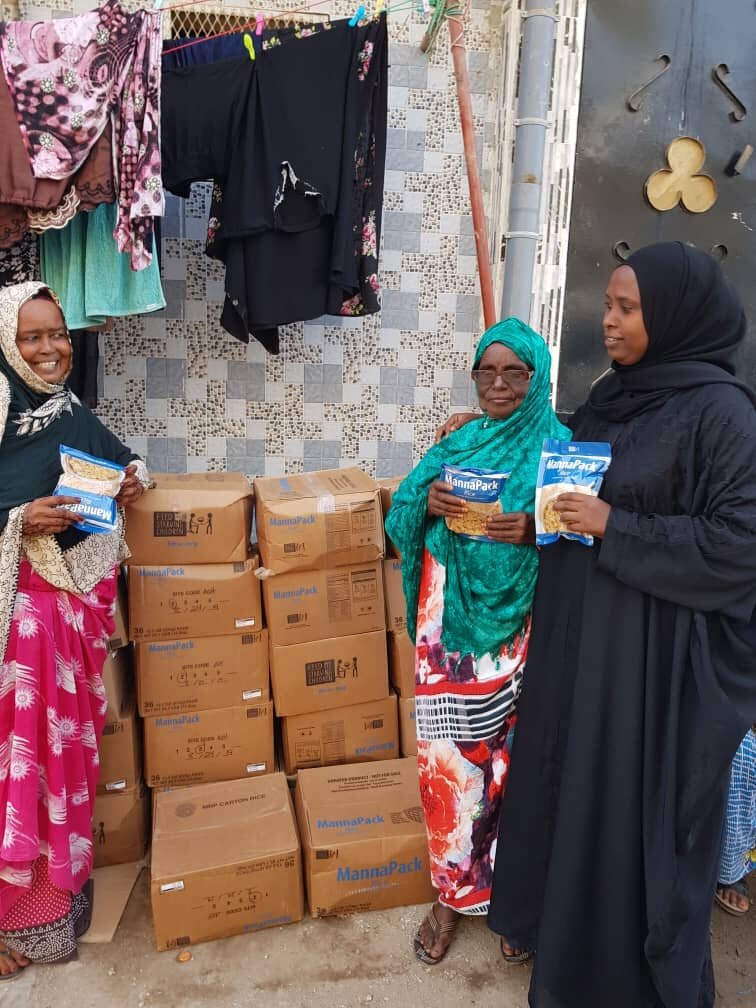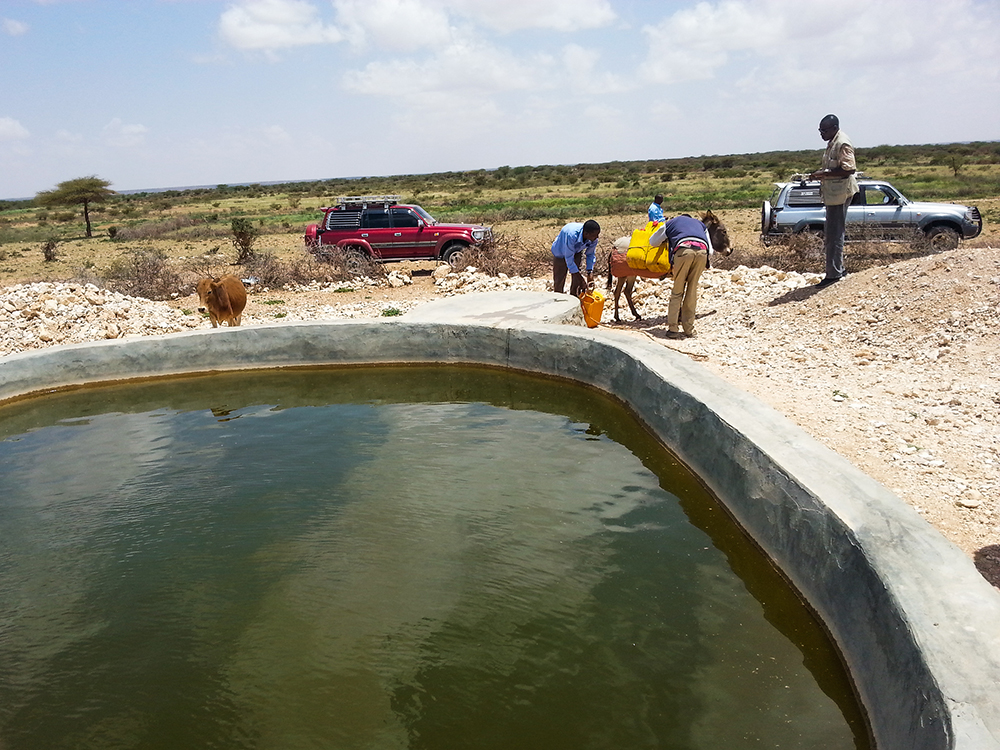
News
Latest Updates
Stay up to date with all the amazing work of L.I.F.E
More stories from L.I.F.E
LIFE works with Local Village to Build Berkad
A Berkad is a traditional rainwater catchment system. LIFE has worked with various villages in Somalia to build berkads. Recently they built one outside of Hargeisa. A local doctor is part of the community that collects the water, treats it, and then uses it in his hospital. Many villages have asked for help to build berkads because they receive adequate rainfall and it helps store and collect the water for future use. Below are some photos from the final project.
Ahmed Receives Wheelchair, Dignity Restored!
Ahmed has been crippled for 15 years. He did not have a wheelchair so he would crawl on the ground in order to get around or he had to depend on someone else to take him places. Ahmed is 45 years old and received a wheelchair for the first time. He also received a special-made toilet. Our partners said that by giving Ahmed a wheelchair and toilet tailored to his needs that we were giving him the opportunity to a dignified life.
Somali Nursing Students Distribution Nutritious Rice in Somaliland
The nursing students from the Amoud Health Science faculty conduct family visits in the community. This semester they have been going to an area where people have returned to live after being in Ethiopia. During the war they fled from Somaliland to Ethiopia and now they have come back. In this specific area are the poorest of the poor.
In the initial visit from the nursing students they took a family health assessment where they assessed the nutritional status (MUAC assessment tool) of the children under five. In this specific area they found that some of the families who had children were malnourished or in danger of malnutrition. Some of the families could not provide three meals a day for their children. The students brought nutritious rice packages to give out to the families.
In Borma there is an orphanage with about 90 children between the of 3 and 16. The students went there to talk about health education and spend time with the children. They delivered also delivered one box of nutritious rice for the children.
Inside an IDP Camp: Water Filters
LIFE International has provided 85 water filters and containers to the inhabitants of Muhammed Moge IDP camp.
Local Initiatives for Education (LIFE) has provided 85 water filters and containers to the inhabitants of Muhammed Moge IDP camp. These filters consist of a 0.1 micron absolute hollow fiber membrane filter that removes 99% of all bacteria and 99% of all protozoa. It cleans at about 1 liter per minute. No replacement filter or cartridge is necessary and cleaning can be done by backwashing the filter with the provided syringe.
We provided the 80 leaders of groups of 20 families each with a water filter so that the whole camp will have access to a filter. The filter was not given to the leader alone, but to the 20 families together. The extra 5 filters were given to the clinic and the market place.
The training was very well accepted and the leaders responded well. We trust that this will make a difference in the camp and especially in the lives of the many children.
Nure Ali is a 75-year-old Somalilander who lives in the camp. He has 2 wives, but only 10 of his 18 children are still alive. He was elected as a leader amongst the 20 families of Somaliland who live close to him. Some of his children do house chores for other families to help provides for the family. “Water is life and the filter will help us stay healthier,” he said.
Farhia Hussein is a professional nurse from Southern Somalia. She left Mogadishu after her husband was killed in the fighting. She has 5 children and is volunteering in the makeshift clinic. There are more than 100 people visiting the clinic on a daily basis and one of the biggest problems is diarrhea due to lack of hygiene. She is very thankful for the filters and believes that it will make a difference in the camp.
Sara is a strong lady, but the sorrow is evident as she tells us her story. About 7 months ago, as a new flare of violence broke out over Mogadishu, she and her husband (with their 9 kids) fled. As they were running away, her husband was injured and she had to leave him behind. “I’m not sure if he is still alive,” she explained. The journey (1500km) to Hargeisa took more than a month for her and the children (between ages 3 and 17). Sometimes they got a ride, but for most of the journey they had to walk. She stayed in Hargeisa for 2 months before she moved to the camp.
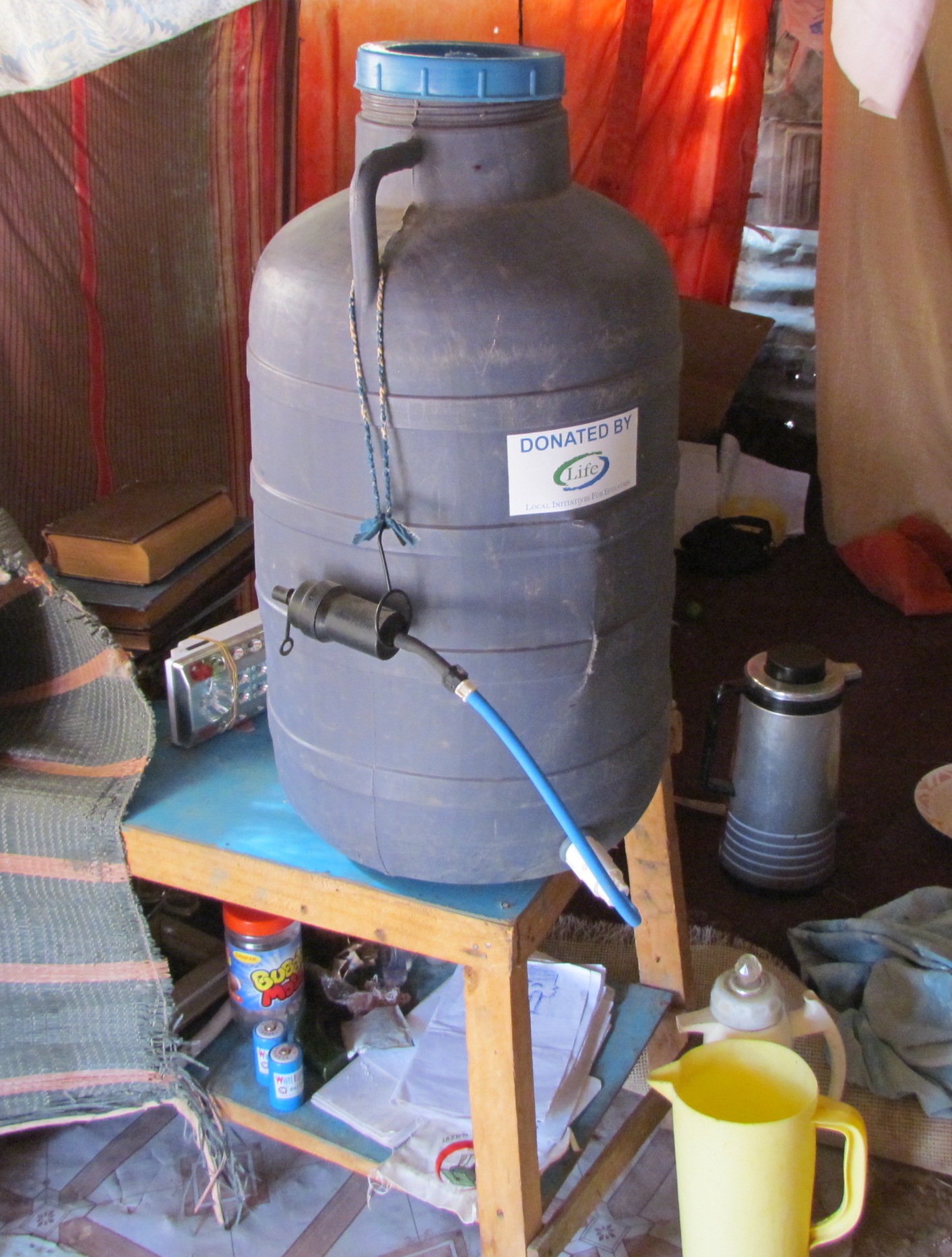
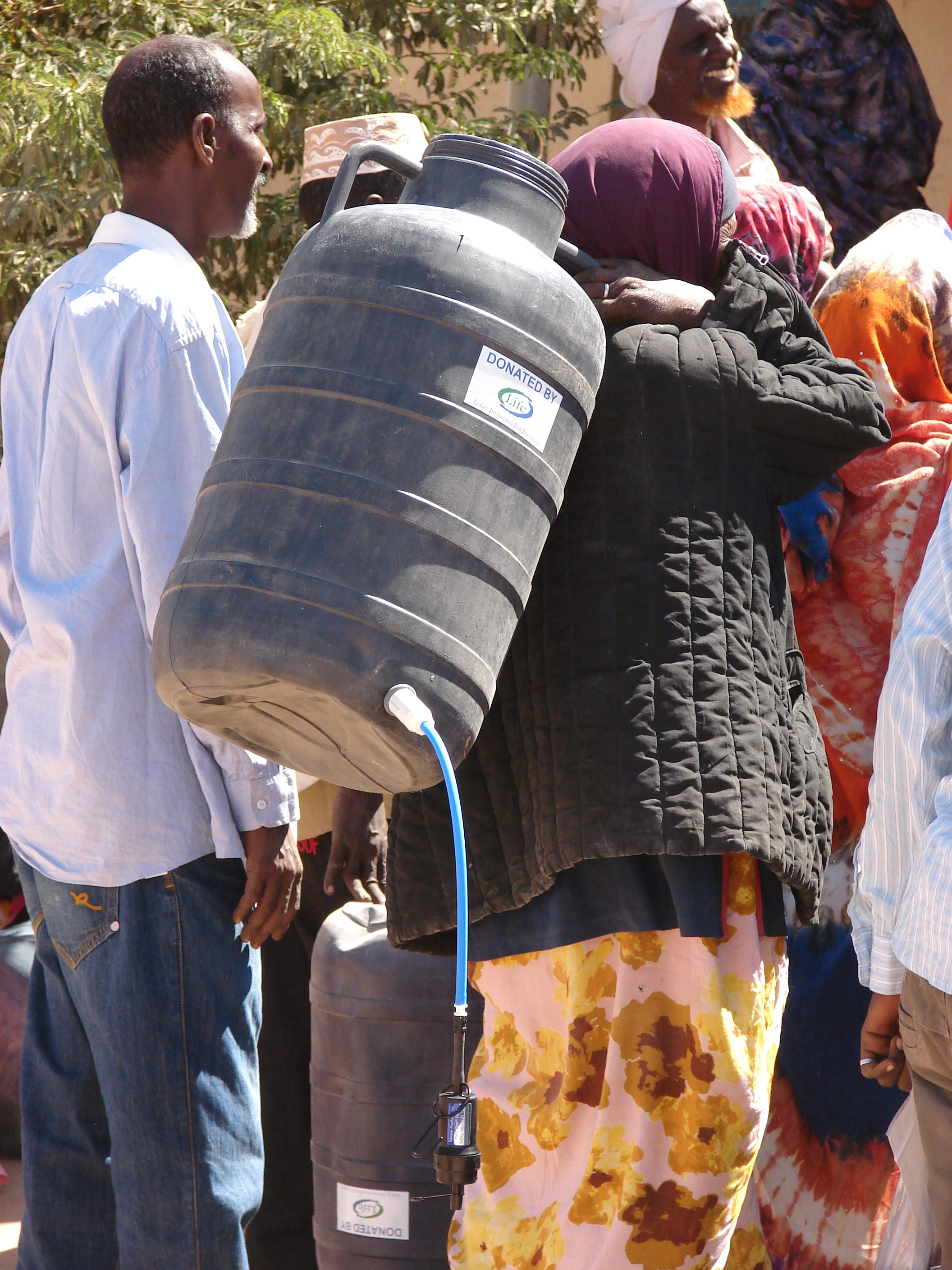
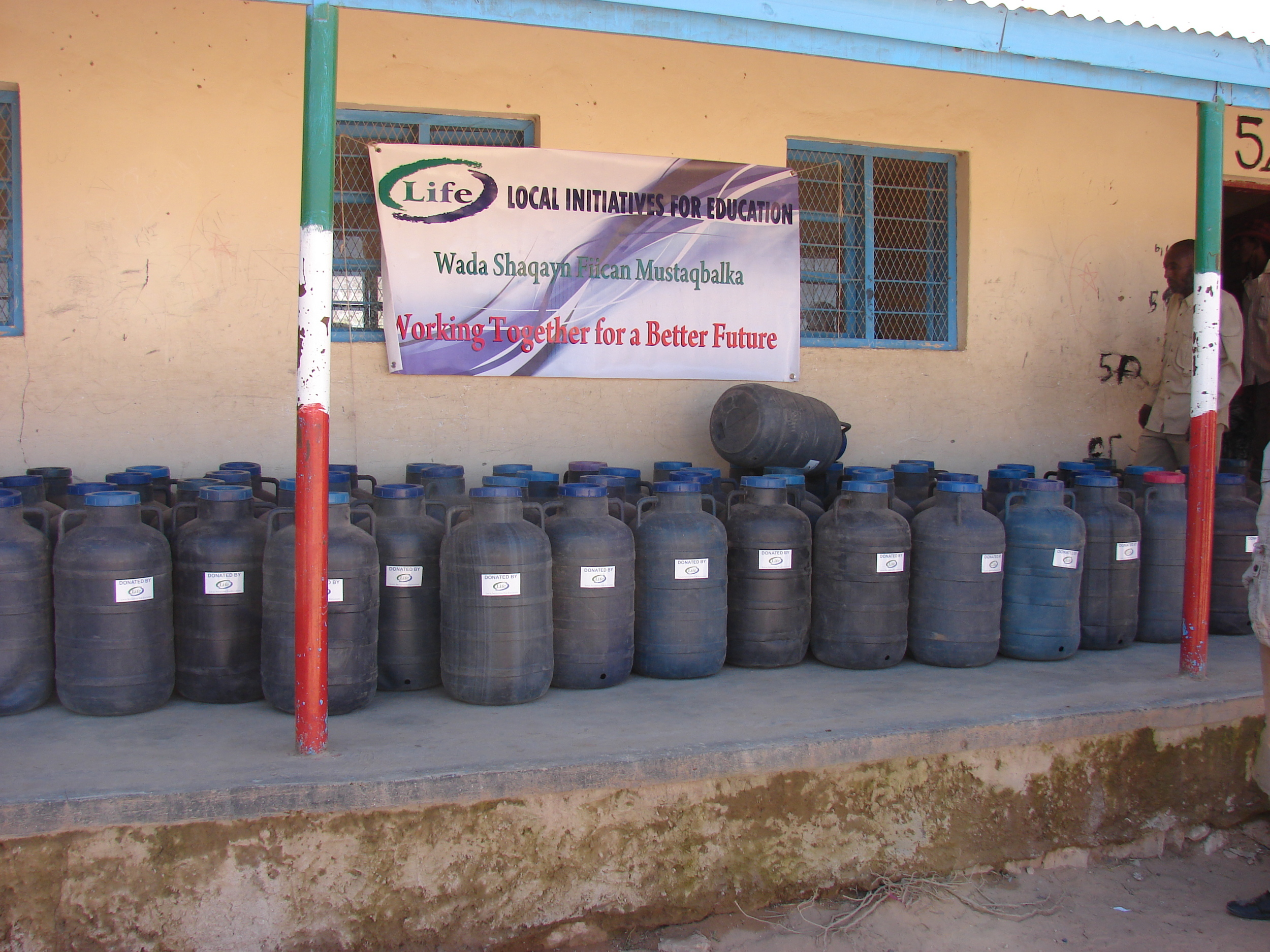
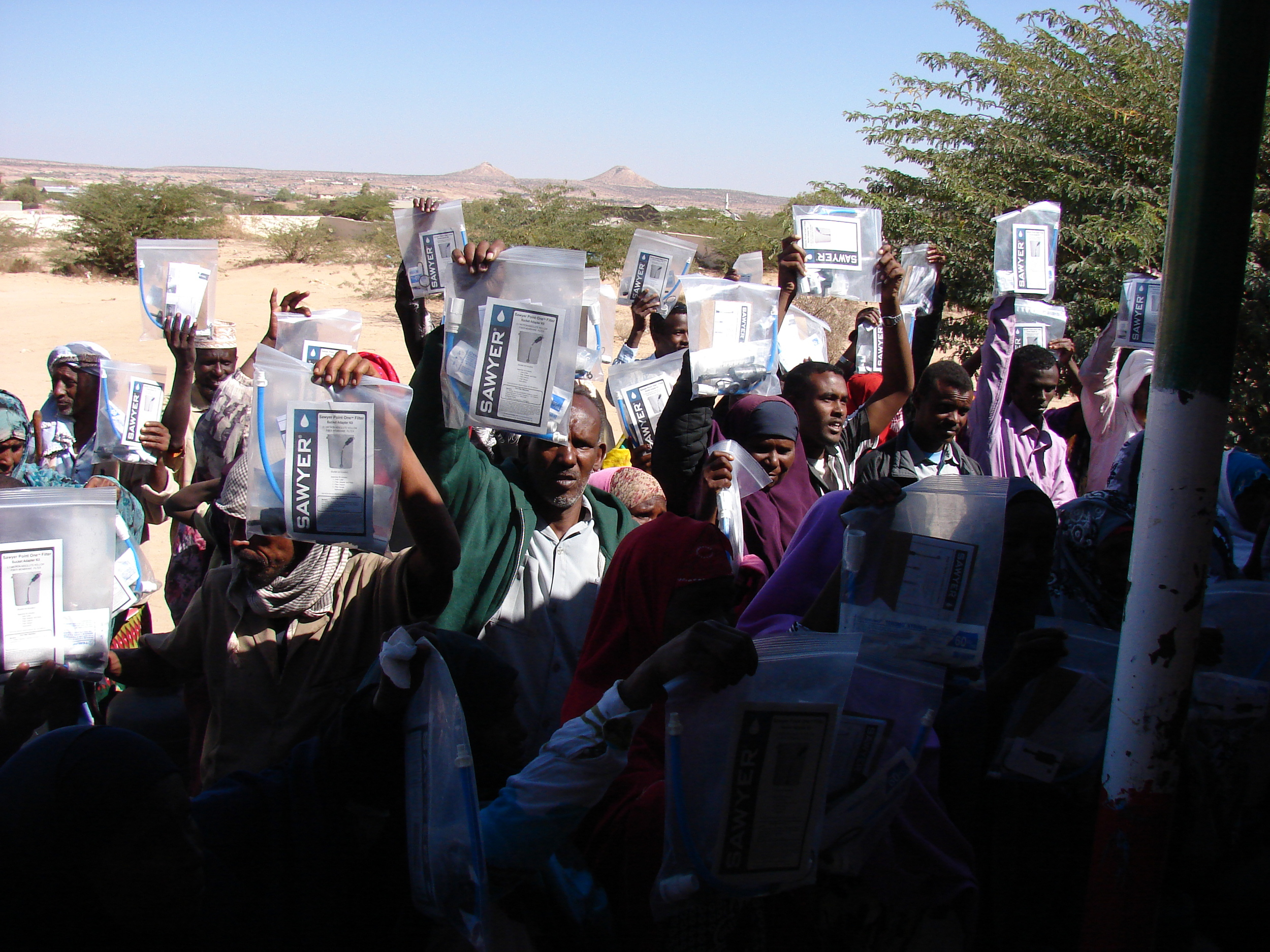
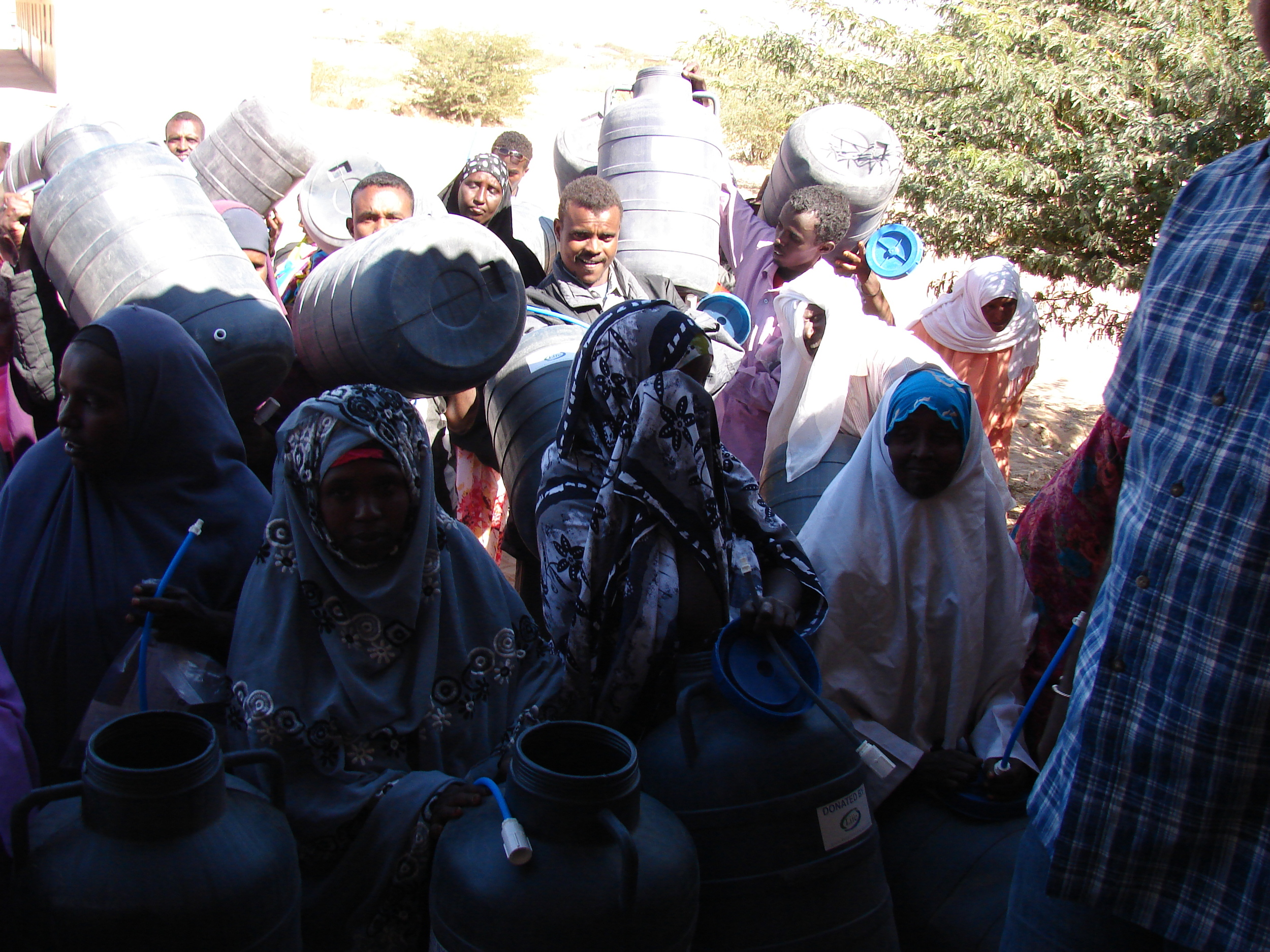
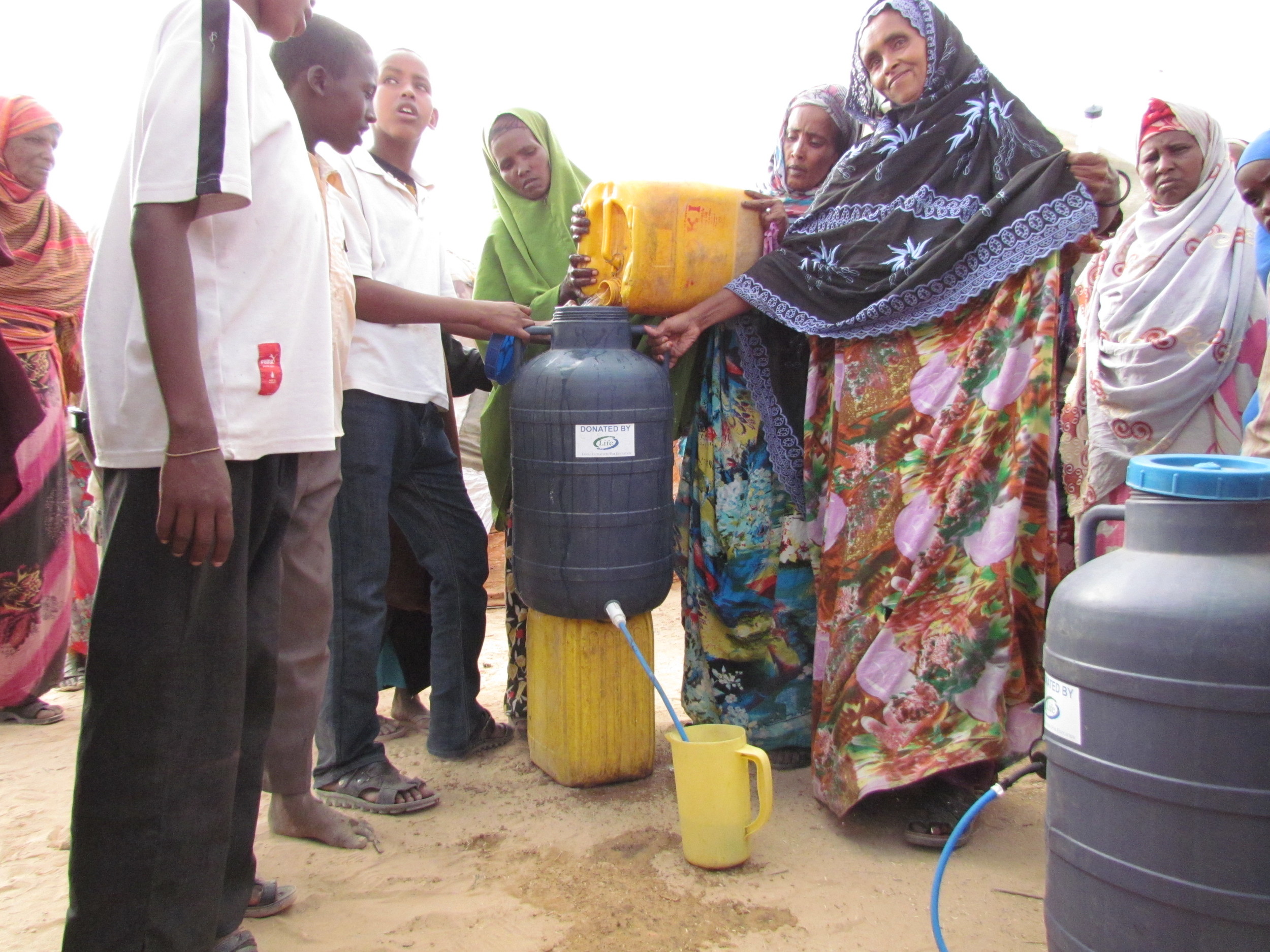
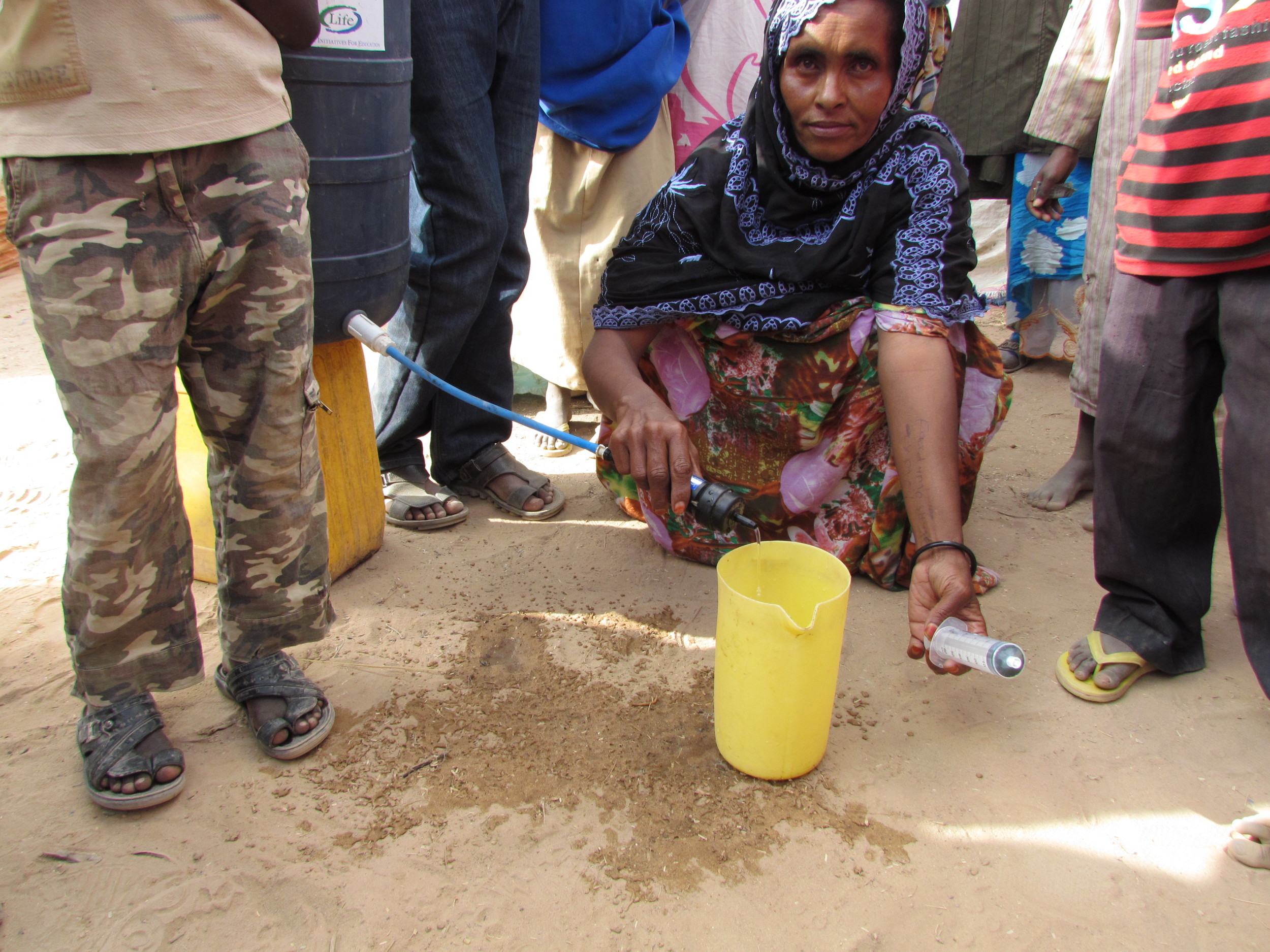
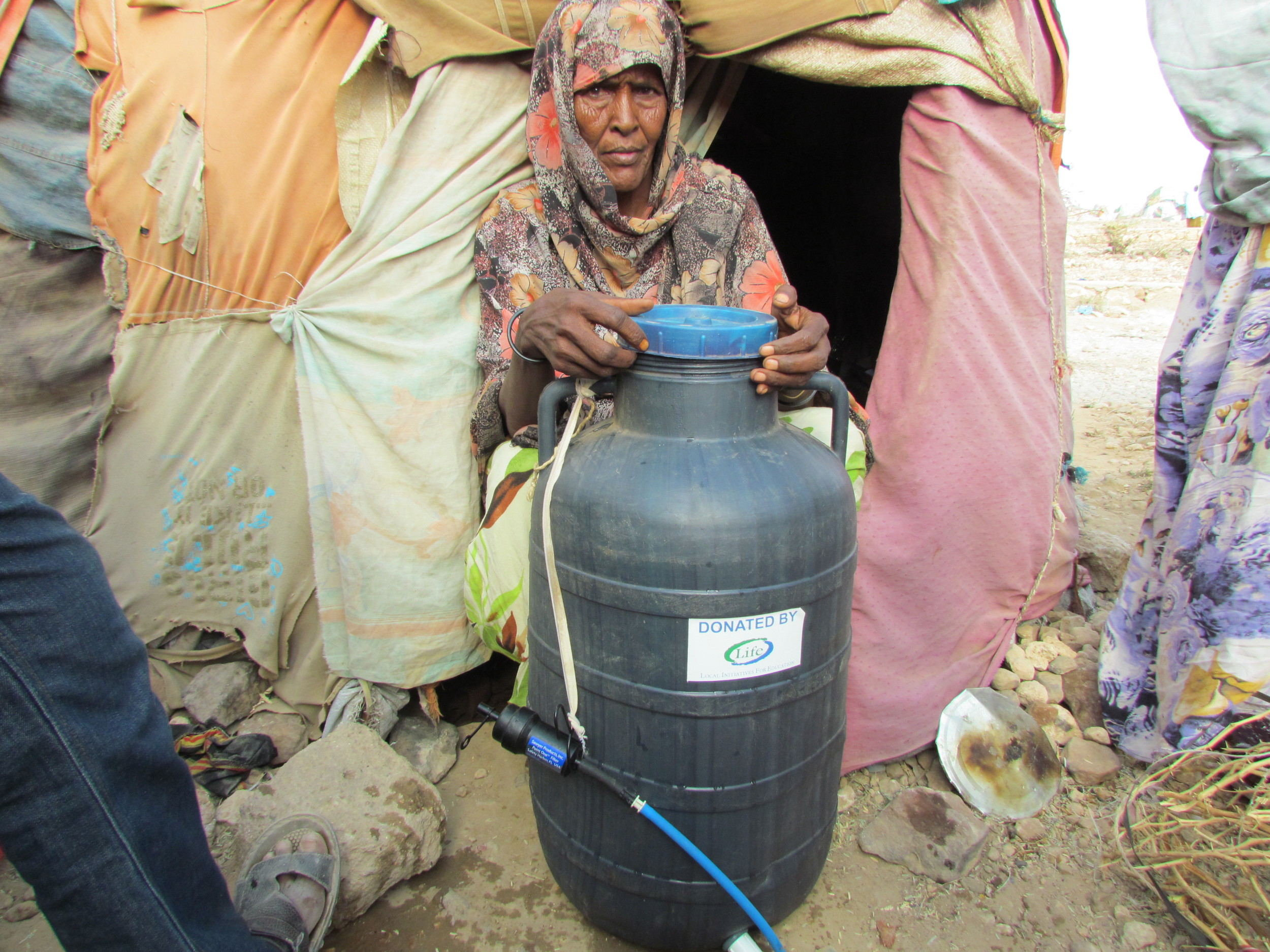
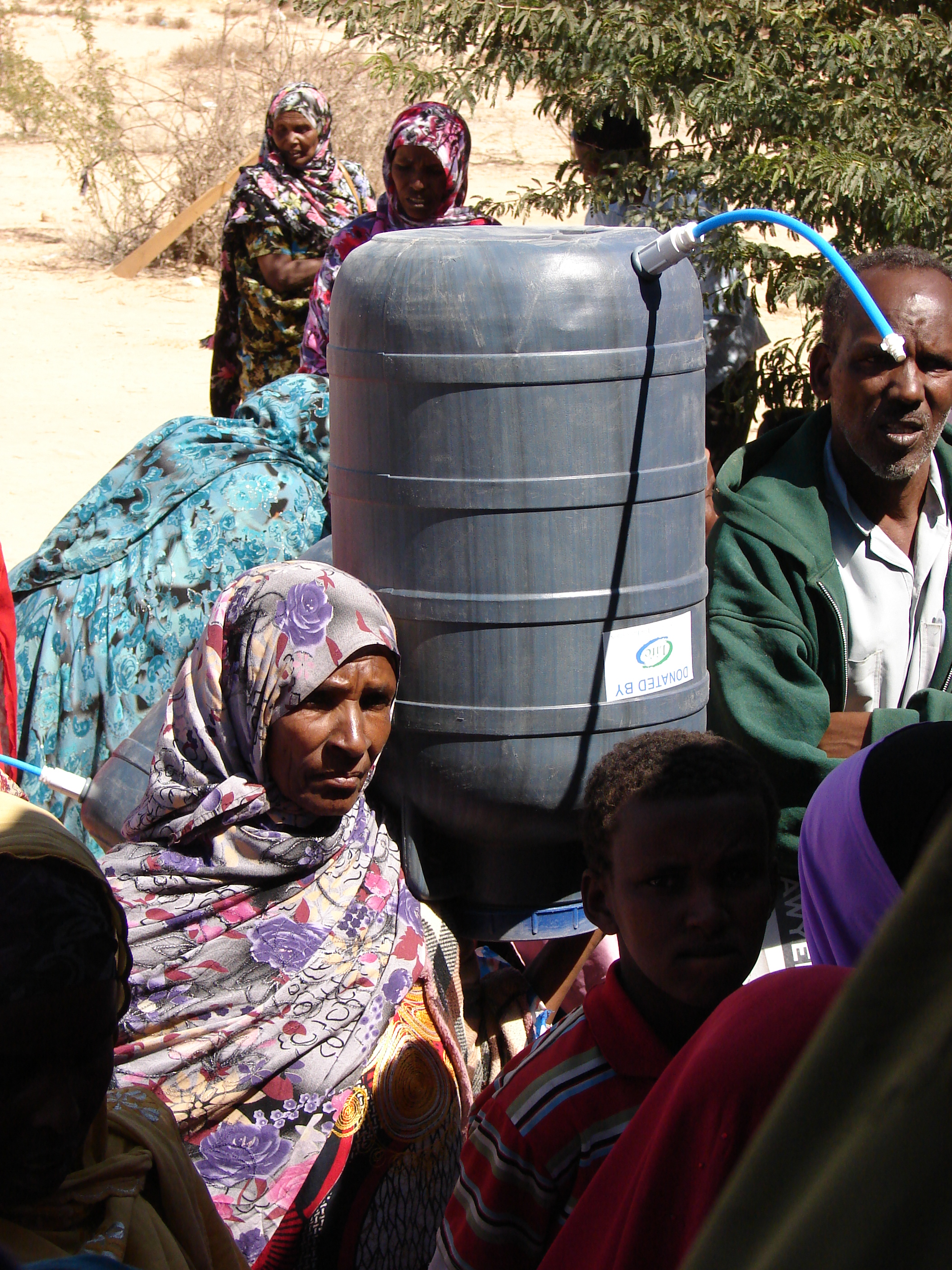
Inside an IDP camp: Food Relief
The needs in the Internally Displaced People (IDP) camp in Mohammed Morge, just outside of Hargeisa, are extreme.
The needs in the Internally Displaced People (IDP) camp in Mohammed Morge, just outside of Hargeisa, are extreme. The camp was established due to the drought in Somaliland. Officially the camp has 1600 families. There are 5-7 people per family of which 4-5 of these members are children under the age of 15. Most often the inhabitants are thus elderly, widowed, or children. The camp is growing with more than 100 new families arriving per month. The major needs in the camp are food, clean water, shelter, proper sanitation, and medicine.
The camp has a functional committee that has registered themselves as a CBO (Community Based Organization) with the Somaliland government. It is divided in groups of 20 families with leaders that were appointed by the groups themselves. There is a makeshift clinic with a nurse from Southern Somalia volunteering her services. Some small kiosks have been opened, a small vegetable market exists, and there are some places that sell water. Some of the inhabitants who are strong
enough go to Hargeisa to beg or look for jobs.
LIFE International (with the help of donors) gave 1500 14kg boxes of MannaPack Rice to the camp. The LIFE International team went to the camp and distributed the 1500 food coupons door-to-door to the inhabitants of the camp. We gave a box for every food coupon received. Although there has been a bit of insecurity caused by the large crowd of people, the day proceeded as planned and the distribution was successfully completed. Some ‘mamas’ cried for joy while many of them were not even able to carry their own boxes. One lady even collapsed due to hunger.
Khadija is a 60-year-old Somalilander who has lost her husband a couple of years ago. She has 10 children. “I pray to Allah for help each day. I have nothing and am only begging for my daily bread! This is the first food I have for more than a month,” she said while kissing my hand (as a sign of appreciation).
Sulecha Ismael is barely 20-years-old and already a mother of two. Her husband (30 years old) is with her in the camp and jobless. They fled the fighting in Mogadishu and now she moves from house to house, looking for some washing to do. Life is difficult with her two small children. Many
times they have to go to bed hungry. She appreciated the Manna rice very much!
Habiba clung to to her box of food as she agreed to talk to us. She never took her hand off the box during the
interview, as if it is her only possession. She is a 70-year-old from a rural area in Somaliland. There are 5 of her children with her in the camp. She also has a child in the hospital. The pain in her face tells the story of her 3 children and husband who have died. She has been in the camp for the last 5 months and this is the first relief food she has received!
Somaliland Development: Food For Work
Small villages often lack communication with larger centers and cannot evacuate casualties or get in aid.
Small villages often lack communication with larger centers and cannot evacuate casualties or get in aid. Food and other supplies are expensive because of transport costs.
This village is benefiting from a Food for Work program which is building a road to the nearest town as well as providing basic food and clothes distribution.
In the last 10 years in this area, 16 women have lost their lives in childbirth because of the inability to evacuate them to a medical facility.
An elderly lady, Amran, is taking care of her five grandchildren, who were orphaned when their parents died of hunger. She has no source of income, but has the burden of caring for the children, the youngest being nine months old. When the LIFE team gave her 10 packets of rice-soy food, she was overwhelmed with joy and cried. The children gathered and hugged their grandmother and the packs of food.
the route
the road under construction
A School in AShekh Awareh built when a road connected the village to a small town 45km away; Immunization vehicles can now get through and camels are no longer the only transport.

Join the story
Discover how L.I.F.E empowers communities to create lasting change, restoring dignity and inspiring people to build hopeful, thriving futures.

